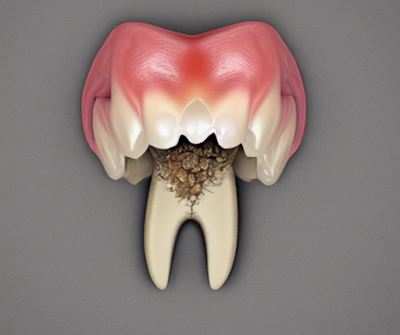Caries vaccine?
Experts consider it highly unlikely that this wish will be fulfilled.
Bacteria are crucial in the development of caries, generating the acids that demineralize the enamel; in periodontitis, they are the ones that induce gum inflammation; and in halitosis, they are the ones that produce the volatile compounds that generate lousy odor.
Bacteria, by themselves, do not cause these diseases. Instead, a triggering factor is needed, which, for example, in the case of caries, is the ingestion of sugars. Periodontitis is the accumulation of dental plaque due to poor oral hygiene. And then, each individual's genetic factors (the immune system or the amount of saliva produced) condition the disease. So when bacteria come together with external (diet, hygiene) and internal (genetic) factors, a 'perfect storm is generated that triggers the disease.
Difficulties to overcome
We are not dealing with infectious diseases per se; if you drink water with Vibrio cholera or eat a salad with Salmonella, you can get cholera or salmonellosis because you did not previously have those bacteria in your body; that is, you have been infected with them. Research shows that even people who have never had gingival bleeding or have never had caries have the bacteria that cause it: it is called having the enemy at home.
So it's not a matter of eliminating these bacteria; it's more a matter of balance. This makes it more difficult because a vaccine or an antibiotic will not work; it's about encouraging the beneficial bacteria and keeping the harmful ones at bay. And we are getting more and more tools to do that.
An impossible vaccine?
One of the main obstacles to the successful development of a caries vaccine is that not all people with caries have the same bacteria, which is the key to the failure of a caries vaccine: each caries has a different composition of bacteria.
Streptococcus mutans was thought to be the leading cause of caries for almost 100 years, and it is now known that it only accounts for 1% of the bacteria present in caries lesions. This would explain why caries vaccines have not worked in clinical trials and will probably never work, as there is no single target to attack. This is why we say that caries, periodontitis, and halitosis are polymicrobial diseases and not specific infectious diseases that we can treat with a vaccine.
For decades there have been active (a vaccine) and passive (application of antibodies) immunization strategies, but all have failed. The problem is that the bacteria that were thought to be "the only cause" of caries were chosen as the target, and what has now been found is that there are dozens of these bacteria, which, moreover, vary between individuals and are also present in most people without the disease (albeit in low proportion).
Therefore, the current worldwide trend is to try to restore the balance of dental plaque, not to eliminate bacteria from the mouth by sterilizing it, which we already know is useless and counterproductive. For this, brushing helps because aerobic and beneficial bacteria are favored. Moreover, brushing is fundamental: people who brush their teeth twice a day have fewer cavities than those who touch once... and three times is better than double.
Given the difficulties in obtaining a vaccine against caries, the best hope is prebiotics and probiotics. Probiotics are beneficial bacteria applied alive in people who do not have them; it is an idea similar to the Bifidus of the intestine. Prebiotics, on the other hand, are nutrients that favor beneficial bacteria, such as those found in some vegetables and fruits, i.e., they would function as a bacterial fertilizer for those microorganisms that improve oral health.

